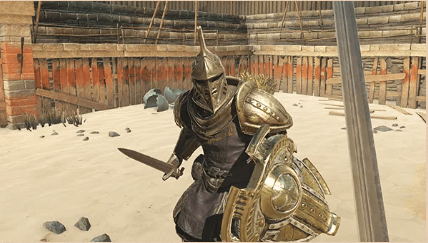
Mobile gaming has evolved significantly over the past decade, bringing the rich landscapes and immersive gameplay traditionally reserved for PCs and consoles to handheld devices. Among the most iconic MMORPGs (Massively Multiplayer Online Role-Playing Games) is World of Warcraft (WoW), a game that has set the standard for online gaming experiences. Its success has inspired a plethora of mobile games that capture similar elements—adventure, community, and expansive worlds. In this article, we will explore several mobile games that offer experiences akin to WoW, delving into their gameplay mechanics, storytelling, and community aspects.
1. The Rise of Mobile MMORPGs
Before diving into specific games, it’s essential to understand the rise of mobile MMORPGs. With advancements in smartphone technology, developers have been able to create rich, immersive experiences that rival their PC counterparts. The increasing accessibility of mobile devices has broadened the gaming demographic, allowing more players to engage in online worlds.
The success of games like WoW has proven that there is a strong market for MMORPGs, encouraging developers to innovate and adapt these experiences for mobile platforms. As a result, mobile MMORPGs now feature detailed graphics, expansive storylines, and vibrant communities, all of which are essential to a WoW-like experience.
2. Top Mobile Games Similar to World of Warcraft
a. Lineage 2: Revolution
Lineage 2: Revolution is a mobile adaptation of the beloved Lineage series, known for its deep lore and engaging gameplay. This MMORPG provides a visually stunning experience with high-quality graphics that are impressive for mobile devices.
Key Features:
- Massive Siege Battles: Just like WoW, Lineage 2: Revolution features large-scale player-versus-player (PvP) battles, allowing players to engage in epic sieges with hundreds of participants.
- Rich Lore and Quests: The game offers an expansive world filled with quests, lore, and character development, reminiscent of WoW’s questing system.
- Character Customization: Players can create their characters from various classes, each with unique skills and abilities.
Community Aspects: The game encourages players to form clans, engage in cooperative gameplay, and participate in server-wide events, fostering a sense of community similar to that found in WoW.
b. Albion Online
Albion Online is a sandbox MMORPG that places a strong emphasis on player-driven economy and open-world PvP. Its isometric view and unique art style provide a different aesthetic compared to WoW, but it maintains many elements that fans of traditional MMORPGs will appreciate.
Key Features:
- Class Flexibility: Players can switch classes at any time, allowing for versatile gameplay styles and strategies.
- Player Economy: The game features a robust crafting and trading system, allowing players to create items and trade with others in a player-driven economy.
- Territory Control: Guilds can claim land and resources, leading to conflicts and alliances that mirror the faction dynamics in WoW.
Community Aspects: Albion Online promotes player interaction through guilds, alliances, and large-scale battles, creating a vibrant community atmosphere.
c. Blade & Soul Revolution
Blade & Soul Revolution brings the popular PC MMORPG experience to mobile devices, featuring a captivating story set in a beautifully designed world inspired by Asian mythology.
Key Features:
- Martial Arts Combat: The game offers fast-paced, action-oriented combat reminiscent of console games, allowing for combo attacks and fluid movement.
- Dynamic Quests: Players can engage in various quests that advance the storyline and provide opportunities for character progression.
- Stunning Graphics: Blade & Soul Revolution boasts impressive visuals that capture the essence of the original game while optimizing for mobile play.
Community Aspects: The game fosters community through clans and cooperative dungeons, enabling players to team up for challenging content.
d. Genshin Impact
While not a traditional MMORPG, Genshin Impact has taken the gaming world by storm with its open-world exploration and gacha mechanics. It offers a single-player experience with co-op features, appealing to those who enjoy the exploration aspect of WoW.
Key Features:
- Open World Exploration: Players can explore the vast landscapes of Teyvat, discovering secrets, completing quests, and interacting with NPCs.
- Elemental Combat System: The game’s combat revolves around elemental interactions, allowing players to create synergies between characters for strategic advantages.
- Regular Content Updates: Genshin Impact frequently releases new content, including characters, events, and regions, keeping the experience fresh.
Community Aspects: Genshin Impact encourages social interaction through co-op gameplay and events, though its single-player focus sets it apart from traditional MMORPGs.
e. Black Desert Mobile
Black Desert Mobile is the mobile version of the acclaimed PC MMORPG Black Desert Online. It retains the intricate mechanics and stunning graphics that made the original popular.
Key Features:
- In-Depth Character Customization: The game offers extensive character customization options, allowing players to create unique avatars.
- Action-Oriented Combat: Players engage in real-time combat with skill combos and movement, providing a dynamic experience.
- Rich Crafting and Gathering Systems: Similar to WoW, players can gather resources, craft items, and engage in life skills like fishing and farming.
Community Aspects: Black Desert Mobile features guilds, player housing, and large-scale PvP battles, creating a vibrant community experience.
f. Elder Scrolls: Blades
While Elder Scrolls: Blades is more of a dungeon crawler than a traditional MMORPG, it draws from the rich lore of the Elder Scrolls universe. Players can build and customize their own town while engaging in combat and quests.
Key Features:
- Town Building Mechanics: Players can create and upgrade their towns, adding unique structures and improving their surroundings.
- First-Person Combat: The game features first-person combat mechanics, providing an immersive experience.
- Questing and Exploration: Players can embark on quests, exploring dungeons and battling enemies.
Community Aspects: Elder Scrolls: Blades incorporates social features that allow players to visit each other’s towns and participate in events, creating a sense of community.
3. Gameplay Mechanics and Features
One of the key elements that make these mobile games appealing to WoW fans is their gameplay mechanics. Here are some common features found in these games that resonate with the MMORPG community:
a. Questing and Storytelling
Similar to WoW, many mobile MMORPGs offer rich narratives with extensive questlines. Players are drawn into intricate stories, often involving factions, epic battles, and character development. Engaging quests keep players invested in the game world and encourage exploration.
b. Character Progression
Character development is a fundamental aspect of MMORPGs. Players typically start with basic abilities and gradually unlock new skills, equipment, and customization options. This progression mirrors the leveling system in WoW, allowing players to feel a sense of accomplishment as they advance.
c. Social Interaction
Community is a significant part of the MMORPG experience. Mobile games like the ones mentioned encourage social interaction through guilds, parties, and cooperative quests. Players can form friendships, engage in friendly rivalries, and participate in large-scale events, fostering a sense of belonging.
d. PvP and Competitive Gameplay
Many mobile MMORPGs incorporate player-versus-player elements, allowing players to engage in battles against each other. This competitive aspect appeals to those who enjoy the thrill of PvP encounters, similar to WoW’s arenas and battlegrounds.
e. Expansive Worlds and Exploration
Exploration is a key component of the MMORPG experience. Mobile games offer vast worlds to explore, filled with hidden treasures, secrets, and lore. Players can spend hours wandering through beautifully crafted landscapes, just as they would in WoW.
4. The Future of Mobile MMORPGs
The future of mobile MMORPGs looks promising as developers continue to innovate and adapt their games to meet the demands of players. Here are some trends that could shape the future of mobile gaming in this genre:
a. Cross-Platform Play
As technology advances, the ability to play across multiple platforms (PC, console, and mobile) will likely become more prevalent. This could create a more unified gaming community, allowing players to connect regardless of their preferred gaming device.
b. Cloud Gaming
Cloud gaming services are on the rise, potentially allowing players to experience console-quality games on their mobile devices. This could lead to a new wave of MMORPGs that push the boundaries of what mobile gaming can offer.
c. Augmented Reality (AR)
With the growing interest in AR gaming, future mobile MMORPGs may incorporate augmented reality elements, allowing players to interact with the game world in innovative ways. This could create unique gameplay experiences that blend the real world with fantasy elements.
d. Enhanced Social Features
The social aspect of gaming will continue to evolve, with developers finding new ways to foster community and interaction. Enhanced guild systems, in-game events, and social media integration could create a more interconnected gaming experience.
Conclusion
Mobile games like World of Warcraft are redefining the gaming landscape, offering players immersive experiences that capture the essence of MMORPGs. Titles like Lineage 2: Revolution, Albion Online, and Genshin Impact showcase the diversity and depth available in mobile gaming, proving that adventure and community can thrive on handheld devices.





